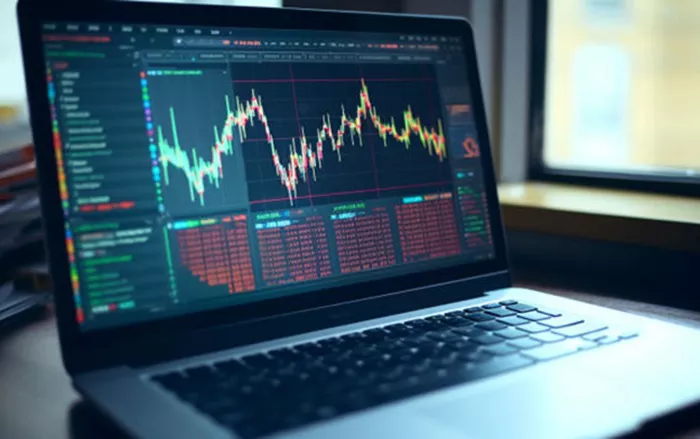On September 10th, 2001, and the days leading up to the tragic September 11 attacks, there was notable and unusual trading activity in the stock market, particularly involving the shorting of stocks for companies that were heavily impacted by the events. This peculiar trading behavior has since been the subject of extensive speculation and investigation. This article delves into which stocks were shorted, the investigations that followed, and the broader implications on financial markets.
1. Airlines and Insurance Companies: Unusual Trading Patterns
One of the most notable occurrences was the significant increase in the shorting of airline stocks. For instance, American Airlines (AAL) and United Airlines (UAL) experienced an unusually high volume of put options. Put options are financial instruments that allow the holder to sell a stock at a predetermined price, usually when they anticipate the stock price will decline. This activity indicated that investors were betting on a substantial drop in these airlines’ stock prices. The sharp increase in these trades raised eyebrows as both airlines had flights directly involved in the 9/11 attacks. Additionally, major insurance companies such as Munich Re and Swiss Re, which had substantial exposure to claims related to the attacks, also saw unusual trading patterns. This indicated that some market participants might have anticipated significant financial repercussions for these companies.
2. Financial Institutions: Heightened Trading Activity
Financial institutions with significant operations in the World Trade Center also exhibited unusual trading volumes. Morgan Stanley (MS), which occupied 22 floors of the World Trade Center, experienced a surge in trading activity. Similarly, Merrill Lynch (now part of Bank of America), which had a prominent presence in the World Trade Center, saw increased trading activities. The heightened trading in these financial institutions’ stocks, particularly in put options, suggested that some traders might have expected significant market disruptions affecting these firms. This pre-attack trading behavior in financial stocks was part of a broader pattern that fueled extensive investigations by regulatory bodies.
3. Investigation and Speculation: The Search for Insider Trading
Following the attacks, the Securities and Exchange Commission (SEC) and other regulatory bodies launched thorough investigations into the unusual trading activities to determine if there was any insider trading or foreknowledge of the attacks. These investigations scrutinized the trading records and patterns to uncover any potential links to those who might have had prior knowledge of the events. Despite the heightened speculation and the compelling patterns of increased trading in specific stocks, the official investigations concluded that there was no definitive evidence linking the trading activities to foreknowledge of the attacks. The unusual trading volumes were attributed to a variety of market factors, and no direct connection to insider information was established.
See also: Do You Know: Which Stocks Will Split In 2024?
4. Broader Market Impact: The Ripple Effect of the Attacks
The aftermath of the 9/11 attacks had a profound and immediate impact on the stock markets. The U.S. stock markets were closed for several days following the attacks, a rare occurrence that underscored the severity of the situation. When the markets reopened, there was a significant decline in stock prices across various sectors, reflecting the widespread uncertainty and the anticipated economic repercussions of the attacks. The attacks led to increased volatility in the financial markets, with significant sell-offs in sectors such as airlines, insurance, and financial services. These market reactions were part of a broader economic impact that included changes in regulatory policies aimed at enhancing market transparency and security to prevent potential future abuses.
5. Long-Term Effects: Regulatory Changes and Market Practices
In the long term, the events of 9/11 prompted significant changes in market regulation and practices. Regulatory bodies implemented stricter measures to enhance the transparency and security of financial markets. These included more rigorous monitoring of trading activities, improved communication protocols among financial institutions, and enhanced security measures to protect against potential threats. Additionally, the market’s response to the attacks highlighted the need for robust contingency planning and risk management strategies among financial firms. The 9/11 attacks served as a catalyst for these changes, driving the evolution of financial markets towards greater resilience and preparedness for unforeseen events.
Conclusion
The unusual trading activity on September 10th, 2001, particularly in the stocks of airlines, insurance companies, and financial institutions, remains a topic of interest and speculation. While these activities have fueled numerous conspiracy theories, the official investigations conducted by regulatory bodies concluded that there was no conclusive evidence of insider trading related to foreknowledge of the attacks. The events of 9/11 had a profound and lasting impact on the stock market, leading to significant declines in stock prices, increased market volatility, and long-term changes in regulatory practices aimed at enhancing market transparency and security. Understanding these events provides valuable insights into the complexities of financial markets and the importance of regulatory oversight in maintaining market integrity.
Related Topics:

